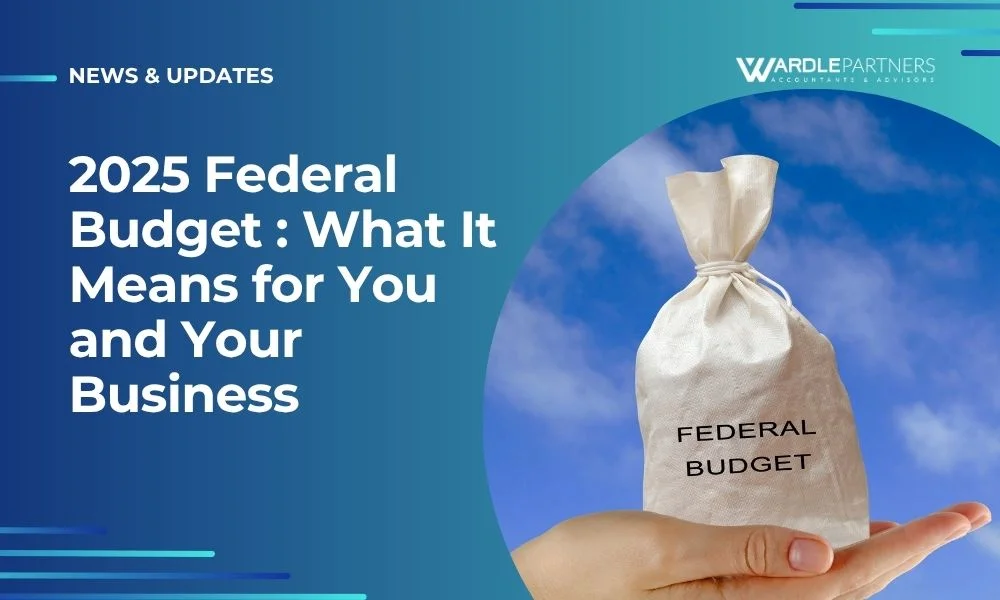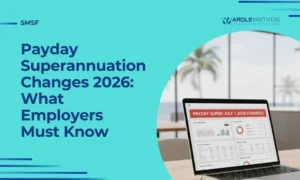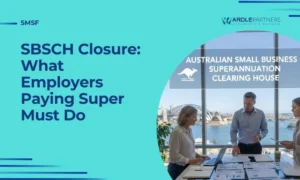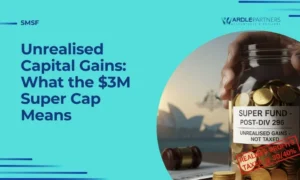The Australian 2025 Federal Budget is out, and it’s bringing in a wave of changes that will directly impact individuals, small businesses, and the broader economy. From personal tax cuts and student debt relief to energy rebates and superannuation tweaks, the Government is aiming to ease cost-of-living pressures and drive workforce participation.
But what does it all mean for you? Let’s break it down.
Personal Taxation: Tax Cuts and Relief for All
The Government is rolling out personal income tax cuts over the next three years, offering some much-needed cost-of-living relief.
Key Changes:
From 1 July 2026: The tax rate for incomes between $18,201 and $45,000 will drop from 16% to 15%.
From 1 July 2027: It will be further reduced to 14%.
All taxpayers will receive a tax cut of up to $268 in 2026 and $536 by 2027.
Combined with the existing Stage 3 tax cuts, the average tax reduction will reach $2,548 annually by 2027–2028—equating to roughly $50 extra in your pocket per week.
Why It Matters:
Lower taxes mean more disposable income, encouraging spending and boosting the economy. It’s also designed to reward workforce participation, particularly for part-time and lower-income earners, potentially creating over 30,000 full-time equivalent jobs.
Student Debt Reduction: A $19 Billion Relief Package
If you’re one of the three million Australians with outstanding student debt, there’s good news. The Government is making significant reforms to reduce Higher Education Loan Program (HELP) and other student debts.
What’s Changing:
20% reduction in outstanding student debts before indexation on 1 June 2025—cutting student debt by $16 billion.
A fairer repayment system based on marginal rates, with a higher earning threshold before repayments kick in, effective from 1 July 2025.
Why It Matters:
For many Australians, this means paying off student debt faster and keeping more of their income. With reduced debt, you’ll have a better shot at qualifying for loans or mortgages.

Energy Bill Rebates: More Relief for Households and Small Businesses
Rising energy costs have been a major pain point for both households and small businesses. The Government plans to extend energy rebates into 2025.
What’s Changing:
Two additional instalments of $75 each will be provided, totalling $150 in extra rebates.
Households and one million small businesses will automatically receive the rebate on their electricity bills, in quarterly instalments.
This initiative will reduce household bills by 7.5% on average and cost the Government $1.8 billion.
Why It Matters:
With energy prices continuing to rise, this rebate offers direct financial relief and reduces inflation by an estimated 0.5 percentage points in 2025.
Help to Buy Scheme: First Home Buyers Get a Boost
For those dreaming of homeownership, the Help to Buy scheme has been expanded.
What’s Changing:
The Government will invest $6.3 billion (an extra $800 million) into the scheme.
Income caps for eligibility will increase:
From $90,000 to $100,000 for individuals.
From $120,000 to $160,000 for joint applicants and single parents.
Property price caps will be linked to the average house price in each state or territory rather than the median dwelling price.
Why It Matters:
By raising income and property price caps, more Australians will qualify for the scheme, making it easier for first-home buyers to enter the property market.

Business Taxation: Support for Apprentices and Fee-Free TAFE
The budget introduces increased support for apprentices and makes TAFE free for eligible Australians.
Key Changes:
$722.8 million over four years (from 2025–2026) to support apprentices, including:
$626.9 million for the Key Apprenticeship Program in residential construction.
$11 million to increase the Disability Australian Apprentice Wage Support subsidy.
Fee-Free TAFE becomes a permanent program, offering 100,000 free places annually from 2027.
Why It Matters:
These measures aim to address skills shortages in critical industries by making vocational education more accessible and affordable.
ATO Crackdown: Taxpayer Compliance and Foreign Ownership
The Australian Taxation Office (ATO) is set to receive $999 million over four years to enhance compliance measures.
What’s Changing:
Increased funding for the Tax Avoidance Taskforce, focusing on multinationals and large taxpayers.
Expansion of the Shadow Economy Compliance Program to combat underreporting and illicit activities.
Foreign ownership ban enforcement:
The ATO will receive $5.7 million to prevent foreign residents from purchasing established properties.
Increased audits and penalties for land banking by foreign investors.
Why It Matters:
For businesses, expect tighter scrutiny around tax compliance. If you operate in industries with frequent foreign investments, be prepared for stricter enforcement.
Child Care Subsidy: More Support for Families
Parents can look forward to better access to subsidised early childhood education.
Key Changes:
$4.5 million over four years from 2025–2026 for system changes under the Child Care Subsidy (CCS) Three Day Guarantee.
Families will be guaranteed at least three days of subsidised child care per week starting January 2026.
Why It Matters:
For working parents, this measure provides more consistent access to early childhood education, making it easier to balance work and family life.

Superannuation: No Major Changes, But an Opt-Out Option for High-Income Earners
There are no significant changes to superannuation in this Budget, but a new opt-out option will be introduced for high-income earners.
What’s Changing:
The Super Guarantee (SG) will increase to 12% from 1 July 2025.
Opt-out threshold: High-income earners (earning over $250,000) can opt out to avoid breaching concessional contribution caps.
Why It Matters:
For high-income earners with multiple employers, this provides an opportunity to prevent excess contributions and avoid extra taxes.
2025 Federal Budget Key Takeaway
The 2025 Federal Budget offers:
- Cost-of-living relief through tax cuts and rebates.
- Debt reduction for students and increased support for apprentices.
- Boosts for first-home buyers and small businesses.
- Enhanced ATO compliance measures.
- More accessible childcare and education support.
Conclusion
The 2025 Federal Budget aims to relieve financial pressures while encouraging workforce participation and economic growth. For individuals, this means lower taxes and reduced debts, while small businesses can benefit from energy rebates and TAFE support. However, increased ATO oversight means businesses need to stay sharp on compliance.
At Wardle Partners Accountants & Advisors, we’re here to help you understand how these Budget changes affect you and your business. Whether it’s tax planning, maximising deductions, or preparing for the new ATO compliance measures, we’ve got you covered.
Contact us today to schedule a consultation and make the most of the opportunities this Budget offers.









